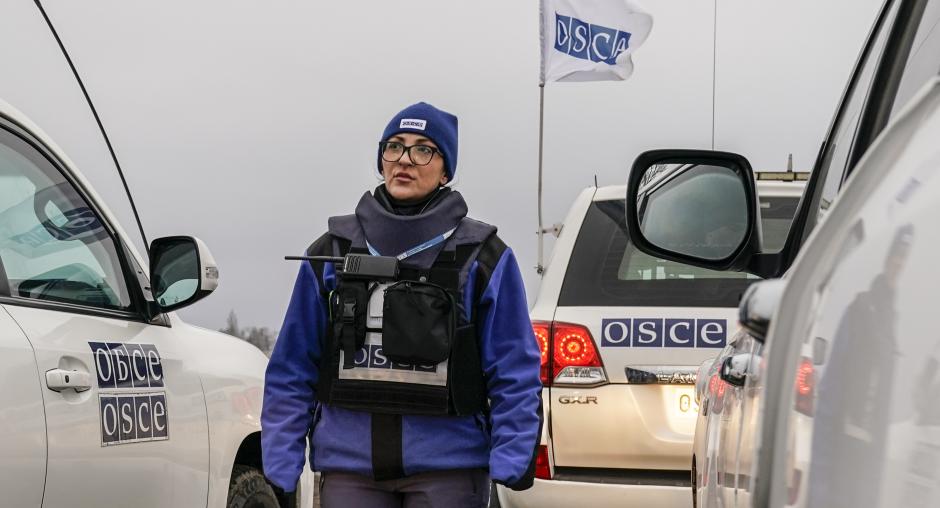Small steps, giant leaps
Friends call her “Dijana Solution” – and the nickname seems apt. Problem solving is one of Dijana Manojlovic’s personality traits, perfected as a Bosnian police officer in her native Sarajevo during the conflict in the 1990s.
“I had to, and it has proved to be handy,” says the 42-year-old with a smile. Her natural organizational skills turned out to be as helpful – since taking up her duties, in August 2019, as Acting Deputy Hub Leader in Sievierodonetsk, some 100 kilometres north-west of Luhansk, Dijana oversees over 100 international monitors, 39 national staff and 61 vehicles. Juggling patrols, schedules, shifts and car maintenance is a challenging task, which the volatile situation along the contact line makes daunting.
Dijana however is not new to the pressure the role poses: 20 years of experience as a police officer, both in her home country and in international missions, have shaped her attitude to adapt to an ever-changing environment where every detail matters. Her time in South Sudan, where she served three years, proved it.
“It was intense, but interesting, rewarding and meaningful,” recalls the monitoring officer who completed her police training with a degree in political science. “I enjoyed the international environment, the constant exchange with people from other cultures. I do not find it a challenge, rather a stimulus.”
In 2012 she returned to her job in Sarajevo, but something in her had changed.
“I wanted to do more along the same line - be present to monitor the situation on the ground, and to make sure that people affected by conflict know the rest of the world cares.”
So when the SMM started recruiting, she had no doubts – in July 2015 she joined the Luhansk monitoring team and one year later she moved to the hub in Sieverodonetsk. The challenges, logistical as well as emotional, were soon clear – but they were known quantities to her.
She recalls entering a village along the contact line, which had been almost entirely abandoned - only an old woman was left.
“She was emotionally broken, but did not want to leave the place she had always called home. We connected, spoke at length and wrote down her needs to be passed onto humanitarian aid agencies for support. I think she felt a little less alone.”
The day-to-day activities required in the coordination of the large team are complex and, in addition, she often represents the mission with international organizations, NGOs, and local authorities. The team monitors and reports on the political, security and human rights situation in the area of responsibility, highlighting issues both internally and externally.
“It is not a job for everyone, you need the right skills – self-control, diplomacy, an open attitude towards people different from you on a number of levels. You also need to be honest with yourself in acknowledging whether you have these qualities or not, which is very difficult. Our presence is key. We record facts on the ground as we observe them. We are an impartial party and this is key to building trust – day by day.”
Confidence building is made of tiny steps, which however can lead to marked progress – take the construction of Stanytsia Luhanska bridge, a change that has impacted the lives of thousands, for the better.
“Our duty is to implement the mandate and we need to be conscious that, by doing so, we support the people.”

